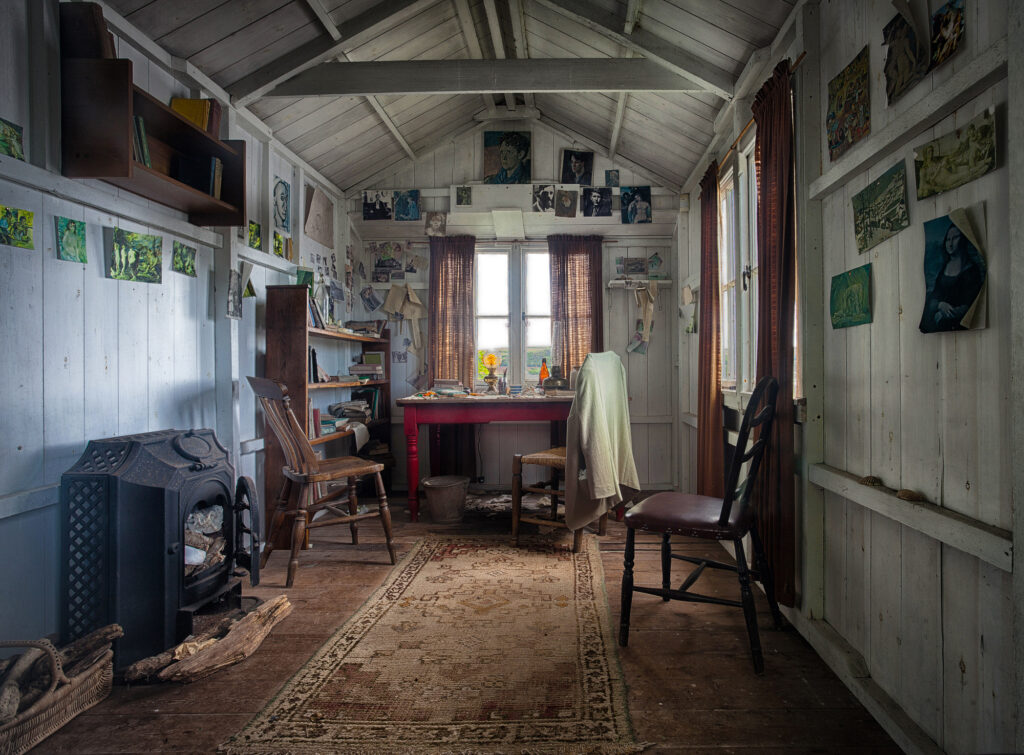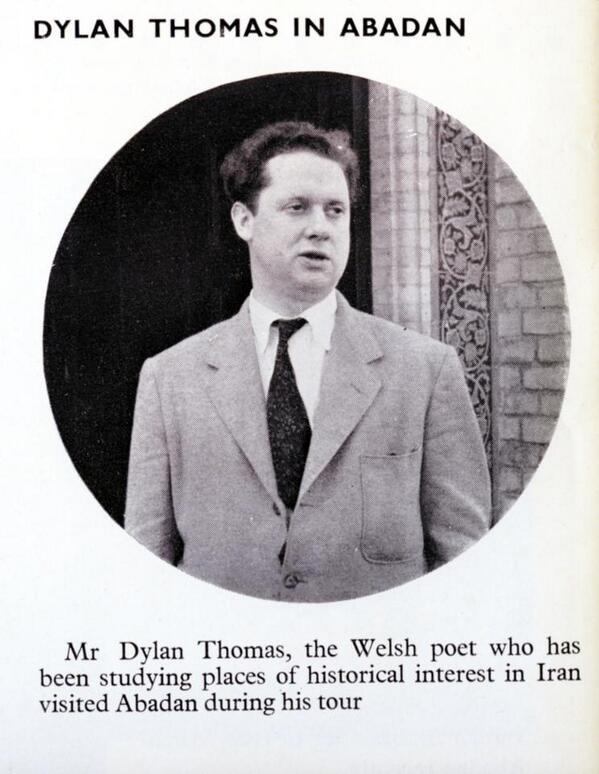New Film Voiced By Michael Sheen Shares Dylan Thomas’s Relatively Unknown Journey Through Iran

While most people growing up in Wales will be familiar with the work of popular West Wales poet Dylan Thomas, whose most famous work was the ‘play for voices’ Under Milk Wood, produced just before his death in 1953 – and for visitors to Laugharne, his boat shed (pictured above), where he did most of his writing, is a must-visit destination.
However many are unaware that in addition to writing poetry, Thomas was also a talented screenwriter with 23 film screen credits, 14 of which were documentary wartime and post-war propaganda films.
In 1951, his screenwriting work took him to Iran where he was commissioned to write a propaganda film for the Anglo-Iranian Oil Company (now known as BP) – a project that was eventually completed but for which Dylan Thomas never penned the script.

This relatively unknown chapter of the writer’s life is now the subject of a short film written and directed by Dr Nariman Massoumi, a Senior Lecturer in Film and Television at the University of Bristol and voiced by the award-winning Welsh actor Michael Sheen who described his involvement in the project: “I think it’s a beautiful and fascinating film about a chapter of Dylan Thomas’s life I knew nothing about. It was a pleasure to be a part of it.”
Entitled ‘Pouring Water on Troubled Oil’ – a direct quote from Thomas to describe the dangerous or futile nature of the job he was assigned to do, the new film is screening at a number of international film festivals and recently came runner up in the The British Association of Film, Television and Screen Studies (BAFTSS) Practice Research Awards. It will get its Welsh premiere on Monday 20 May at the BAFTA-recognised Carmarthen Bay Film Festival and screened at Cinema Rediscovered festival in Bristol in July, as well as appearing at festivals in Germany, Italy and Brazil.
Film TrailerTold in his own words, this poetic archival documentary accompanies Thomas on his journey through Iran, capturing his inner conflict with the assignment and his encounter with the country and its people against the backdrop of an anti-colonial struggle for oil nationalisation. The film is constructed almost entirely from striking, rarely unseen black and white archival photographs, brought to life with by Payam Hosseinian’s haunting sound design and with Thomas’s distinctive lyrical reflections voiced by Michael Sheen.
Dr Massoumi said: “Like many people, I was initially surprised to learn of Dylan Thomas’s visit to Iran, that he was there to produce a film, and even more surprised that it was a publicity film for BP during what was a turning point in the company’s history and in the relations between the two countries, when Iranian oil was nationalised and the British kicked out.”
While Britain did not formally colonialise the country, Iran became a central part of Britain’s informal empire after the discovery of oil in 1908. The British government was the majority shareholder in the company, as controlling Iranian oil became a highly profitable and crucial strategic asset to Britain’s domestic economy and global power – fuelling both world wars and the post-war welfare state.
This came with a publicity and propaganda operation for which, like other oil companies such as Shell, involved producing and sponsoring documentary films to promote the company activities and the benefits of oil extraction to the wider public.
In 1948, in response to increasing opposition and unrest in Iran, this took a new turn, when the company embarked on an ambitious PR drive, including a Technicolor film project in the oil city of Abadan in Southern Iran – for which Dylan Thomas was eventually assigned to as scriptwriter in 1951. A few months after Thomas’s visit, Iranian oil was nationalised by the popular and democractically elected Prime Minister Mossadegh until he was removed from power in 1953 through an MI6/CIA orchestrated coup d’etat.
Dr Massoumi added: “When I first heard of Dylan Thomas’s involvement in an oil film in Iran, there were all sorts of questions: not least, why would the Anglo-Iranian Oil Company think a Welsh poet associated with the left, known for his unpredictable behaviour and excessive alcohol consumption might be a suitable choice to write a promotional piece about a British enterprise in a Muslim country?
“What was Dylan Thomas’s experience of Iran, what did he encounter there, who did he meet? What did he end up writing? What happened to the film, how did it all end up? How do we place him or his role in this history of oil and imperialism?”
During his research for the film, Dr Massoumi discovered Thomas had written about his Iranian adventures in his letters back home and for a BBC Home Service broadcast called Persian Oil in April 1951. His letters home were personal, but they included lyrical, sardonic reflections and observations of the world her encountered, of Cadillacs and disease, of sexually frustrated British oil company workers and stark social inequalities.
These personal accounts did not reveal much about the film Thomas was assigned to and Dr Massoumi visited the BP oil company archives at the University of Warwick to find out more. The archive holds documents and photographs relating to the whole history of the oil company including the films they produced including Persian Story, the film that was eventually made without Thomas’s involvement, which premiered to an audience of 11,000 people in Leicester Square in 1952 and formed an important part of the propaganda campaign against Iranian oil nationalisation.
Dr Massoumi said: “My initial motivation was quite simply to bring these two archives together and restage them in some form in dialogue or conflict, and by doing so engaging in the task of writing this unknown episode back into history. Not only to restore this significant aspect of Dylan Thomas’s life – this was, after all, his final film project, and his only colonial encounter. But it was also about producing a counter-history of the oil company promotional films in contradistinction to the ideological and political narratives they pursued and had constructed through film.”
‘Pouring Water on Troubled Oil’ will be shown at the Carmarthen Film Festival on Monday 20 May at 3pm at Ffwrnes Theatre, Park Street, Llanelli SA15 3YE.





